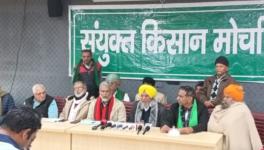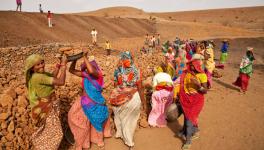COVID-19 in Rural India-XXIV: Harvesting Underway But Farmers Worried Over Procurement in Bihar
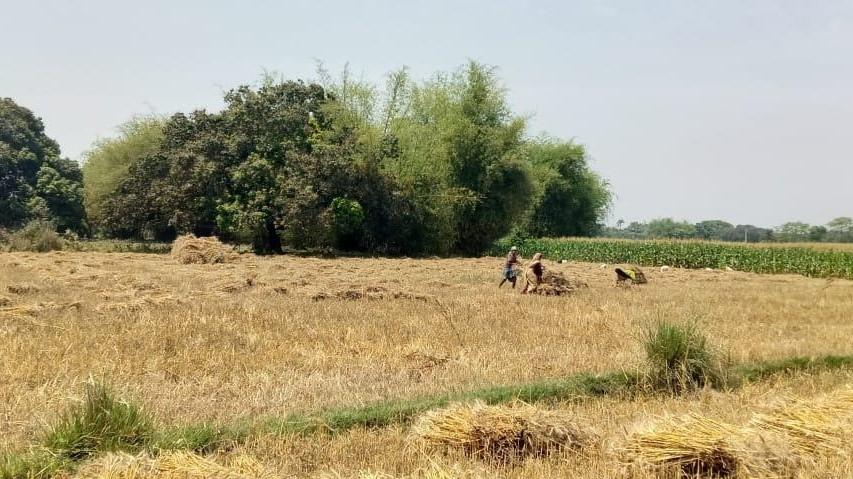
Wheat harvesting underway.
This is the 24th report in a series that provides glimpses into the impact of COVID-19-related policies on life in rural India. The series, commissioned by the Society for Social and Economic Research, comprises reports by various scholars who have been conducting village studies in different parts of India. This report describes the impact of the nationwide lockdown on the farmers and agricultural labourers in the Kuraitha village in Bihar’s Katihar district. While the migrant workers and daily wage workers are out of work, the rising prices of essentials have further added to the misery of the villagers.
Kuraitha village is located in one of the worst flood-affected zones in Bihar. The village is situated near Kamla river that later connects with Koshi, the river which annually devastates the northern part of the state with flood. The village is almost 15 km from the district headquarters in Katihar. There are approximately 900 households in the village, consisting of a significant proportion of scheduled castes (SC) and scheduled tribes (ST). The Census of India 2011 reports that the 86% population of the village is directly dependent on agriculture, either as cultivators or agricultural workers. Nearly all farmers in the village are small and marginal landholders. The agricultural plots are generally small in size and land is uneven.
In most of the recent years, this village has witnessed flood that damages Kharif crops in the area at a massive scale. Hence, the rabi crops become the lifeline for the households dependent on agriculture. Currently, maize and wheat are in the field. On a smaller portion of land, a few farmers have shown Garma Dhan (summer paddy). The lower land in the village is used for Makhana (fox-nut) cultivation, a water crop. One of the respondents reported that fruits have come out in the maize plants and will be ready for harvest by May. The maize crop will require almost two rounds of water and urea before the harvest. Because of lockdown, farmers are facing difficulty in buying fertilisers like urea. The fertiliser shops are selling urea at a price which is 10-20% more than the actual. All respondents use family labour in the maize field. The plants of summer paddy are tiny at present, that will be ready for harvest by June.
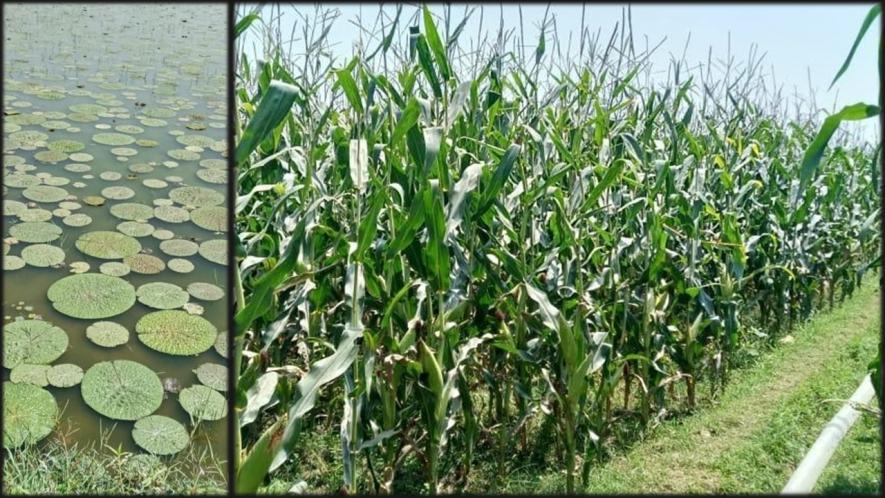
Fox-nut cultivation (left). The maize crop has started bearing fruits which will be ready for harvest by May. (Right)
The harvesting of wheat has started in the village. All farmers in the village manually harvest wheat. At the time of the interview, all respondents reported that they are working with their family members in the wheat field. Once they finish their wheat harvest, they plan to work in others’ fields. So far, the lockdown has not affected the agricultural work, However, farmers are more concerned about the sale of wheat. Responding to the question of what will happen if the Centre extends the lockdown, one of the respondents said, “मोदी जी भले lockdown बढ़ा दे लेकिन हमारा गेहूं खरीद लें (Modi ji may extend lockdown but make sure about the procurement of wheat).” He further added that many of the farmers do not have storage capacity and production is not much; hence, they sell wheat to local traders. They are anticipating that local traders will buy wheat at lower price and store, as these traders have small warehouses. However, unlike previous years, local traders have not approached farmers for procurement of wheat this time.
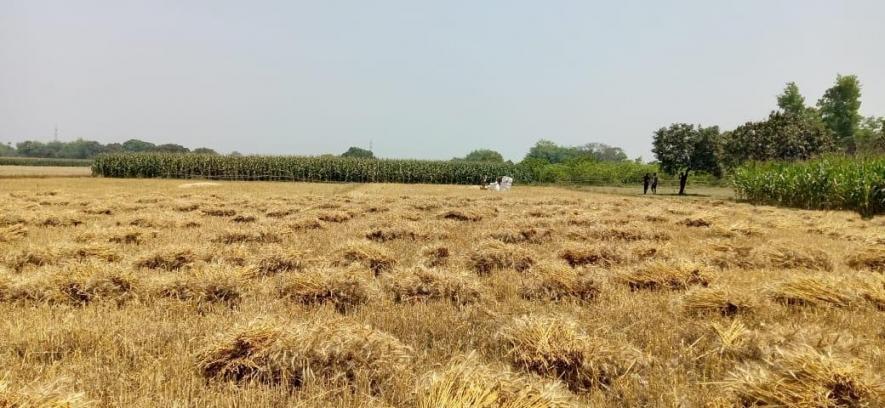
Wheat harvesting under way.
There are many cycle rickshaw pullers, daily-wage workers and grocery workers in the village who have lost their jobs and are unable to go for their work because of lockdown. The two migrant workers, who were interviewed, had recently returned from New Delhi and Surat, respectively. One of the respondents was working in a textile company in Surat. He had returned to the village for Holi. The other respondent was working as a construction worker in New Delhi. He had left New Delhi on the day of Junta Curfew (March 22), anticipating that curfew might be extended. However, he could not get the train so, he first reached the UP border, and then by changing multiple vehicles, he reached Munger and then Katihar. According to him, when PM announced the Junta Curfew, he and his co-workers had anticipated the long term lockdown. They had no work since the announcement of Junta Curfew and being daily wage workers, it was difficult for them to continue living in Delhi without work and money. Currently, these migrant workers are without and work in the village.
The residents of the village are dependent on the market for most of the essential food items. The beginning of lockdown witnessed an unprecedented rise in the price of essential food items. As a result of that, the district administration had issued a rate chart, listing maximum wholesale and retail price for essential items. However, despite the proactive measure of the administration, residents of the village are paying higher prices.
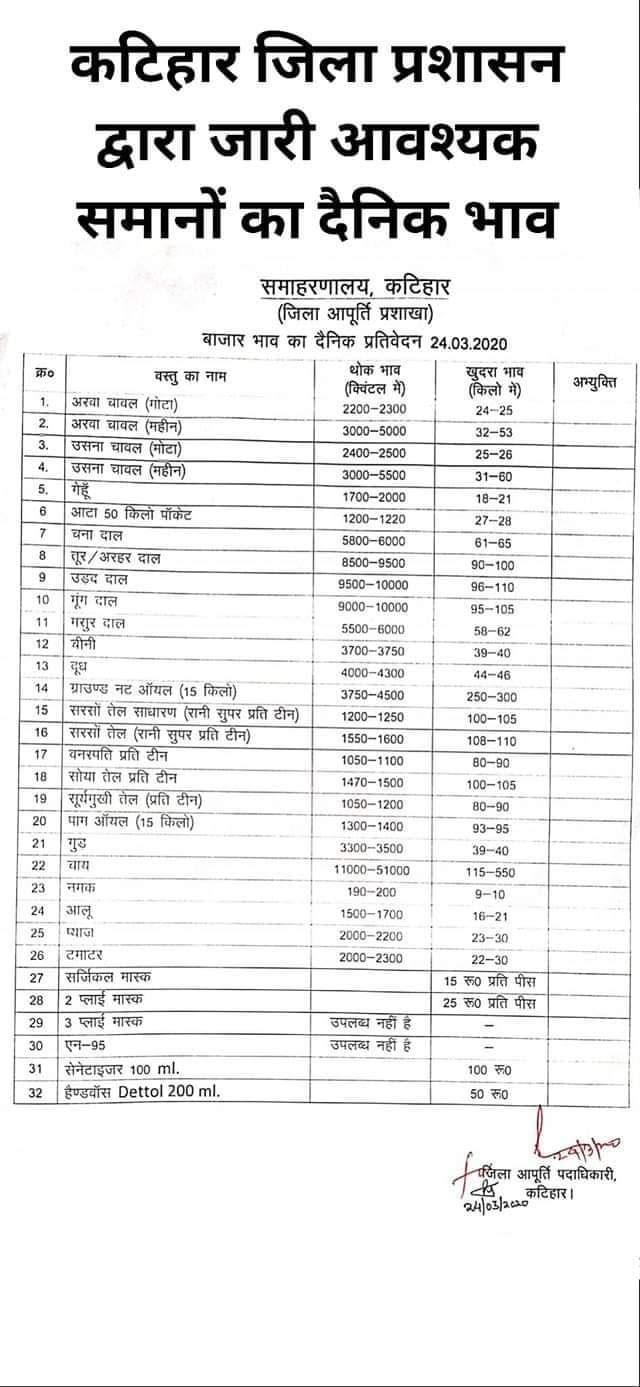
The table below shows the prices of some of the essential food items in Kuraitha village.
Source: Respondents.
Unlike other food essentials, the price of milk has gone down in the village. For the initial two-three days of lockdown, milkmen were selling milk at a throwaway price. Many of the milkmen of Kuraitha village are bulk supplier of milk to the sweets shops in the village and Katihar market. As a result of the lockdown of sweet shops, demand for milk had contracted and hence has impacted the price. One of the respondents reported that milkmen have now started processing of milk to remove fat. The milkmen are selling with fat and without fat milk separately. The fat-less milk, which was available for Rs 30-35 per litre, is now being sold at Rs 20-25 per litre.
The respondents have informed that the frequency of visits by police in the village has increased. Police are enforcing the lockdown actively, but this enforcement is limited to economic activities only; the movement of residents from one home to another in the village has not stopped. All shops in the village are closed except vegetable, grocery and fertiliser shops.
To sum up, the agricultural households need two immediate reliefs; procurement of wheat at a reasonable price and regulation of fertilisers’ rate. The residents, who are wage earners, require regular food and essentials supply and some form of non-agricultural work within the village. The respondents have informed that MGNREGA is non-functional in the village. In light of the rise in unemployment, works under the scheme would be helpful. The milkmen have devised an innovative method to decrease their loss, but there is scope to provide further help; through establishing a supply system of milk between rural and urban areas with the help of cooperatives, the loss of milkmen can be mitigated.
[This report is based on the telephonic conversation with three marginal farmers, three tenants/agricultural-workers and two migrant workers between 30 March and 10 April.]
The author is a research fellow at the Centre for Economic Studies and Planning in Jawaharlal Nehru University, New Delhi.
Get the latest reports & analysis with people's perspective on Protests, movements & deep analytical videos, discussions of the current affairs in your Telegram app. Subscribe to NewsClick's Telegram channel & get Real-Time updates on stories, as they get published on our website.









